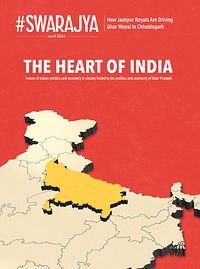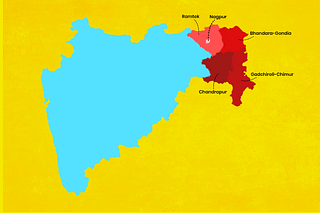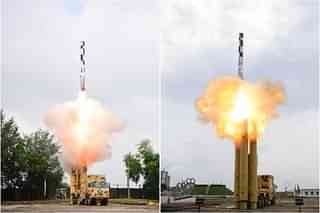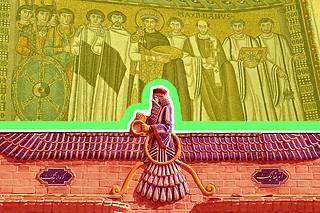Culture
Obituary - S.V Raju (1933 - 2015)
Seetha
May 20, 2015, 05:57 PM | Updated Feb 11, 2016, 09:40 AM IST
Save & read from anywhere!
Bookmark stories for easy access on any device or the Swarajya app.
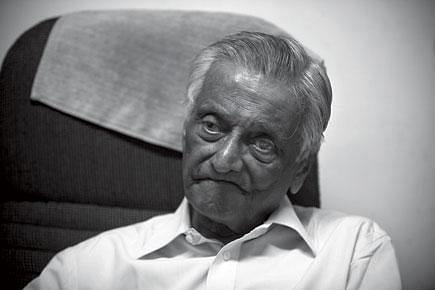
Among the first questions I was asked when I sent out text messages about the passing away of S. V. Raju, the sole upholder of the Swatantra Party flag long, long after it had ceased to exist, was – what happens to the magazine now? The magazine is Freedom First, which Raju had been editing for several decades now.
That was an incomplete question. It should have been what happens to the Project for Economic Education, what happens to the chronicling of the Swatantra Party, what happens to the Maharashtra unit of the party that he was keeping alive. He was doing all this while bringing out Freedom First month after month in the face of immense odds. In short, he was the indefatigable upholder and disseminator of all the values that the Swatantra Party stood for.
I first met Raju in 1998 (he was always Raju, though he was almost my mother’s age. I would prefix a Mr while addressing people younger to him but he was only Raju). He was reviving the Indian Liberal Group, a platform for liberal values that his guide, mentor, friend Minoo Masani, had started way back in 1965. Raju was getting in touch with people who had been in touch with Masani as well as liberal think-tanks and activists. The ILG was almost defunct and it was amazing to see how Raju tirelessly worked to make it a nearly 3000-strong group in just a few years (those numbers are a bit dated), with local chapters, state units and a national executive, getting the website up. He was always in demand and he always found the time.

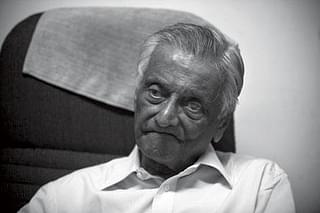
That expansion brought challenges in its wake. Managing the ILG was not easy. When Masani had set it up, it was a platform that brought together communists like Ashok Mehta and Jan Sanghis like Balraj Madhok. Likewise, the revival under Raju brought under its umbrella free market fundamentalists, left liberals, centre-right, centre-left, BJP and Congress sympathisers. Tensions were bound to arise. At the second national convention in Mangalore, one group of people refused to join ILG because population control was among its principles. At another national convention in Hyderabad, a farmers group disrupted proceedings because the drafting committee of the economic resolution mentioned taxing agriculture. Another group said the ILG was drifting too far towards market-oriented policies. Raju had to bear the brunt of all these differences, with each side accusing him of favouring the other.
I have been witness to how Raju, with some cajoling, some straight talking, but always with a smile and sometimes with a slightly helpless look, tried to reconcile differences. Sometimes he succeeded, sometimes he didn’t and had to let people go, but it was always with a heavy heart. `I tried my best,’ he would say, spreading out his hands. But even those who parted ways retained immense respect for the work that he was doing and always praised his efforts. He often spoke about relinquishing the post of president but no one would come forward to take the baton for many years, till 2010.
The ILG was not the only Masani initiative that Raju carried forward. The Project for Economic Education, founded in 1985, was another. The Project was behind a series of liberal budgets that Raju got a group of volunteers to bring out, seminars and lectures on liberalisation in India and a series of workshops to familiarise journalists with issues relating to economic liberalism. Raju was always game for any initiative to take the ILG or liberal values forward. I remember the enthusiasm he showed when in 2002, I very nervously proposed a lecture by then Madhya Pradesh chief minister Digvijaya Singh on more governance with less government. Raju jumped at the idea, coming up with the idea of initiating a Masani memorial lecture on his death anniversary on May 27. Sitting in Mumbai, he went all out to make the event a huge success.
He was a lodestar for diverse groups, those working for active citizenship, human rights activists, those taking up civic issues. The enthusiasm he brought to any venture was amazing and infectious. The only assistance he had was from Kashmira Rao, the other pillar who held up the various Masani ventures Raju was nurturing. He was more tech-savvy than many youngsters and his travels did not affect his work – he would carry his laptop and a portable printer wherever he could.
Only Raju could have come up with the idea of challenging the Representation of People’s Act amendment that required political parties to swear allegiance to the principles in the Preamble to the Constitution, one of which was socialism. He kept at it, even though some very high-profile lawyers, otherwise supportive of all that he was doing, advised him against it.
Like Masani, whom he was closely associated with for several decades right up to his death in 1998, Raju did not hold extreme views. He had implicit faith in free markets but eschewed the near-anarchist approach that questions any role for the government, let alone market regulators. But he also would have no truck at all with the communist parties.
Raju was rigid on some issues. Probity was one. Many voluntary organisations are rather lax about accounting issues, but Raju would not countenance that at all. Time was another. Seminars and conferences had to start on time and people had to give their full attention. He would often quote the example of Masani who started an event without the chief guest when the latter got delayed. He took participants in the first workshop on the first liberal budget away to Deolali hoping there would be no distraction. But people were constantly stepping out of the room to take calls on their cellphones. “I had not bargained for this,” he lamented.
None of those who knew Raju had bargained for his mortality as well. For us, Raju was someone who was always there, a beacon for all classical liberals in need of a forum. Ironically, Raju died a week before his beloved Masani’s death anniversary. Maybe the duo will be getting together to revive the Swatantra up there.
Save & read from anywhere!
Bookmark stories for easy access on any device or the Swarajya app.
Seetha is a senior journalist and author
Introducing ElectionsHQ + 50 Ground Reports Project
The 2024 elections might seem easy to guess, but there are some important questions that shouldn't be missed.
Do freebies still sway voters? Do people prioritise infrastructure when voting? How will Punjab vote?
The answers to these questions provide great insights into where we, as a country, are headed in the years to come.
Swarajya is starting a project with an aim to do 50 solid ground stories and a smart commentary service on WhatsApp, a one-of-a-kind. We'd love your support during this election season.
Click below to contribute.
